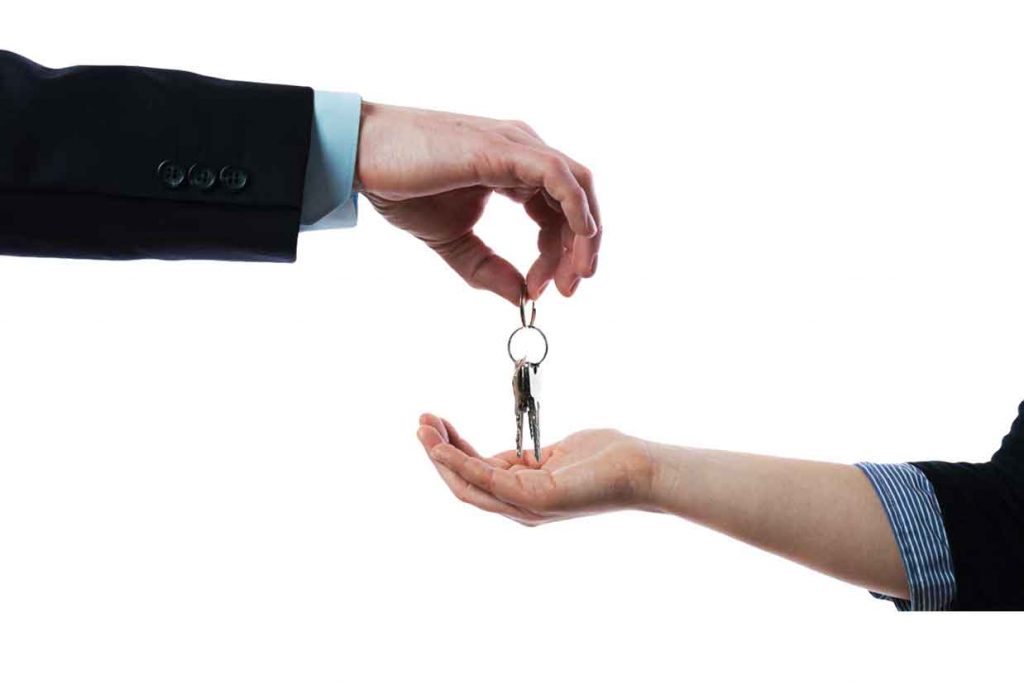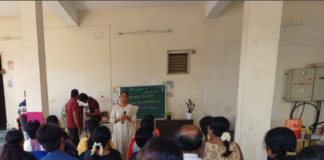What to Check Before Moving into a Rented House?
This article aims to empower tenants who are looking to rent an house in Chennai. Renting a house in Chennai is overly becoming a trauma! The first point of transaction itself starts with a grey area:
The Security Deposit!
The Rental Property deposit which is intended to protect the property infrastructure, rental dues and electricity dues is increasing becoming a source of additional revenue to be withheld in the hands of over exploitative house owners.
This article will make you aware of what need to do and the rights you have! Not just in protecting your money but also your dignity and respect between you and your house owner.
Research Details of your possibly new owner:
Now that you like the house that you have shortlisted, it is important that you do not hop right in and move in your tangibles. Research well about your possible new house owner, both on web and in the neighborhood.
A simple way to get official name details of your new house owner is to ask for his visiting card and do a basic research with the official name on the card.
You should also check with your house owner on details of why the previous tenants left, how long is he willing to rent the house, what is it that is he looking out for in tenants who are going to occupy his property, what are the possible deductions he will make in the security deposit.
These questions though basic, will give you an idea of the personality and attitude of the owner. If the house owner is too exploitative his answers will be around the money and how well he can exploit you to milk as much cash from you.
However, good and ideal a house, if you smell an owner to be exploitative in this conversation, refrain from moving into the house. You are at a risk of losing a size-able amount from your security deposit in the hands of over exploitative house owners.
Know the house you are moving into – On Record!
Before moving into a house it is important to thoroughly check the condition of the house and archive it.
Make a video walk thorough and take pictures of the wall, floor, plumbing, electrical, loft, fan, lights, toilet flush, windows, doors and all the small details of the house you have selected. What looks like a perfectly painted house will later cost you both of your operational money while you are renting and in the end deductions of security deposit.
Make a detailed note of what is not working and intimate your house owner of the same – BEFORE MOVING IN!
A good house owner will try to fix things up for you or have you fix it and reimburse the cost! However, an exploitative house owner will be intimidated of your cautiousness and may refrain from renting the house to you. Remember, exploitative house owners are after all looking for foolish tenants from whom maximum cash can be milked! And you definitely not want to be one!

Read and Sign the Agreement – before your Move In:
Do not ignore to sign the agreement or sign it reluctantly, for the only legal bond between you and your house owner is the rental agreement.
It is important you read all the clauses of the agreement and understand the rental bond that you are entering into. The agreement is usually signed for a period of 11 – 24 months. During this period the rent to be paid is also mutually agreed and documented. It is important to talk to your house owner of putting matters relating to security deposit on the agreement.
Damages will be recovered clause is turning out to be a lottery for house owners….
The clause which is usually a one liner “damages will be recovered” is turning out to be lottery of withholding large sums from the security deposit at the time of vacating the house.
In this section we will introduce you to this clause in detail. What are the damages that can be recovered and what cannot be.
Check your EB Meter Connection – if Owner lives in your premises.
Widely apartments come with separate Electricity Board (EB) meters. However, in many individual houses where the owners live in the same house as the tenants, the chances of your EB meters being altered in HIGH.
As much as you have good faith in your new house owner, it important to hire your own electrician and check if any alternate connection or common area lightnings are connected to your designated meter.
You may also do a basic check by switching off your “main EB switch” and trying to see if that common lightnings or water motor is running.
Many housing tenants avoid living in the premises of house owners, given this reason of EB being tampered. Hence, it is good for you to cautious of the same.
Avoid Furnished Houses – Unless you really need one
Even semi-furnished houses these days come with one Air Conditioner and Geyser. And of course, fully furnished houses come along with all that you need. It is absolutely right that you pay extra rentals for an fully furnished home.
Furnished Houses usually have second-hand, or half operational furniture and electrical items….
What you need to know is this: House owners usually fix second-hand and half operational furniture and electrical items in the furnished properties they are about to rent.
What seems like a working AC or Geyser will run into problems in one or two months and the cost of fixing it or buying a new one will be liable upon you. The non-working AC or geyser, which was a scarp at first place is given as furnished fixtures. These low quality fixtures give room for an house owner to claim under damages clause off your security deposit.
So it is better you to avoid furnished houses or have these low quality fixtures removed before moving into the house.
THINGS TO MAINTAIN WHILE LIVING IN A RENTED HOUSE
Move in and maintain it like your Own
Now, that the checklist before moving into the house is cleared you are all set to move in! Have the movers and packers personnel move in furniture into the house with utmost care. Damages on wall, floor or interiors are caused while moving in big furniture! Hence, utmost care needs to be taken while moving into the house. Also while living in the property make sure you maintain the property as much clean and tidy as it was handed out to you. If not damages clause will come back to haunt your security deposit. Remembers a damages caused in the infrastructure (expect paint, which we will cover) is your liability.
Rent just for TWO YEARS!
Remember this is NOT your home! House owners are increasing renting out properties for a period of two + one years. While this safeguards house owners from handful of evil tenants who claim right to property, it also safe guards tenants from long term damages caused in the house! Your limited period of stay will also serve as a reminder that rental houses are not yours and negatively encourage you to buy your own property. Renting houses every two years is also a negative push to purge out the dirt and unwanted stuff off your house, thereby retaining only the essentials your really need! Hence, let your stay be for Two years both the good of your House Owner and your welfare.
Things to Check Before Moving Out of a Rented House
Hand-over, as it was handed-out to you:
Now, that you have decided to move out of the house it is important to make the house ready and clean. It is an Indian tradition to leave back a dirty, unclean house with all the nasty waste in belief of a superstition that you leave back the bad, in hope of new good!
But, it is both morally wrong and legally unfair for a tenant to leave back a dirty house! Clean up all the mess that is likely to be created before your move out of the house. Also check if all the electrical, wiring, plumbing, floors, toilet flush, cabinets or wood work is as operational as it was handed out to you.
The documented videos, pictures and notes that you have taken “BEFORE” you moved into the house will come handy at the time of exit. Remember, many owners try to deduct large portions of security deposit claiming these small damages and hence if you do not have a document of “BEFORE” house status, it will become increasing hard to negotiate terms “AFTER” moving out with your House Owner.
House Deposit or Security Deposit – What can be deducted and what cannot:
There is only one thing which binds you with your house owner before you completely vacate the premises of the house. The Security Deposit!
House Painting CANNOT be deducted from Security Deposit, leagally!
House Owners these days are increasing deducting large sums of money in the name tag of “Maintenance or Damages” from the security deposit. Getting back your own housing deposit becomes a nightmare, with over exploitative house owners trying to deduct as much as they can from you. Remember, the following are the only items that can be deducted from your Security Deposit “Legally”.
- House Painting CANNOT be deducted from Security Deposit: If the house owner has painted the house before your moved in, it is of moral goodness to give back a painted house. But legally, House Paint or faded wall comes under “Wear and Tear” and not “Damages and Repair” Clause. House Paint cannot be deducted from security deposit legally.
- Structural Damages CANNOT be deducted from Security Deposit: Damages in the building structure like a broken wall or building cannot be deducted from Security Deposit.
- Unpaid Rent can be deducted from Security Deposit: It is a good practice to have a notice period before vacating the house and rent for those months are left unpaid so for the house owner to deduct it from house deposit. It partially secures tenants from being unfairly treated in the hands of the landlords.
- Repairs for Damages in Infrastructure can be deducted from Security Deposit: Any damages within the infrastructure of the house specifically electrical, plumbing, wood and floor can be deducted from security deposit.
- Unpaid Electrical Dues can be deducted from your Security Deposit: Any Unpaid electrical bills or other utilities can be deducted from you security deposit.
If your House Owner do not reimburse your security deposit wholly, save for the reasons mentioned here – go for formal negotiation, local police, legal arbitration or legal small cause court remedy route.
It DOES NOT TAKE A LOT OF MONEY to go to police or a small cause court, unlike other civil or criminal cases.
Disputes regarding security deposit reimbursement are usually completed within ONE MONTH in a small cause court. If the small cause court also finds that the landlord has withheld your security deposit for unfair reasons, he can be punished with a penalty amount.
This penalty amount will be three times the cost of security deposit that will be given to you tenants. So as a tenant do not get cheated in the hands of your house owners whose sole aim is to deduct large portions off your deposit.
Before, getting your house deposit becomes a dirty games of thorns, it is a good practice to vacate the house or move out your furniture after receiving your Security Deposit. Renting a house in Chennai has become a ordeal in Chennai! Even more ordeal is claiming back your own money hand over as housing deposit! Hence, know your rights as tenants and stand up for yourself! After all, just because you live in a rented house in Chennai does not mean you have to unfairly let go off your hard earned money!
Stay Cautious!
How does Law protect Tenant Rights?
The legal remedies available to the Tenant as well owner come in the form of Tamilnadu Lease and Rent Control Act of 1960 amended in 2017. Under the provisions of the Tenancy Act:
- Landlord to receive three months’ rent as advance (So if anybody is demanding anything more than 3 months they are violating the law right away!)
- Landlord and tenant shall be bound to keep the premises in a good condition as specified in tenancy agreement
- Tenant’s right to possession only during lease period extendable up to a maximum of six more months
- Re-entry of tenant allowed only if mutually agreed with a new tenancy agreement
- Rent has to be agreed in rent agreement to be charged
- Rent to be renewed at periodic intervals
- Constitution of Rent Court and Rent Tribunal permitted
- All rental agreement to be made only by mutual consent
- Owner must issue rent receipt. (Compulsory)
- Onus of signing agreement is on the house owner and not tenant.



